

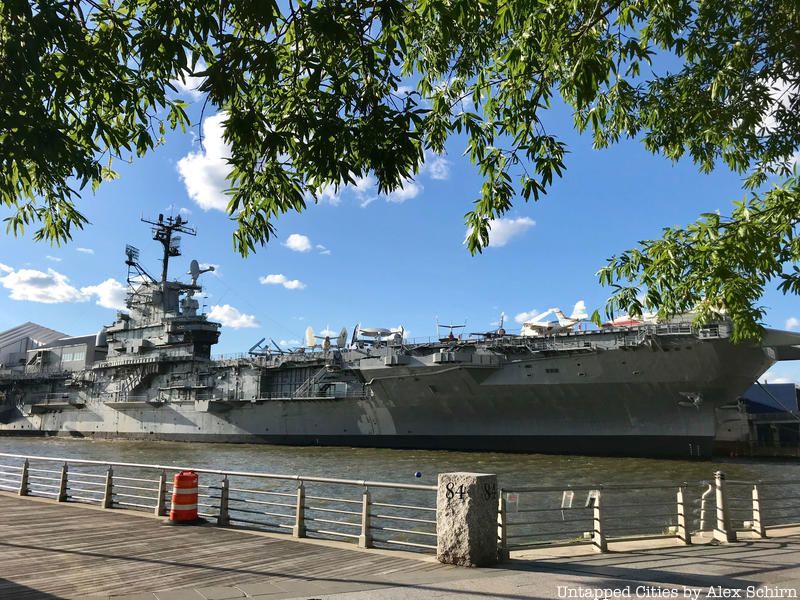
The USS Intrepid, the decommissioned United States aircraft carrier, has been a mainstay on the New York City shoreline since 1982. Offering insight into a type of place that very few people see, this carrier is a perfect learning experience for people of all ages. But the big question is how much do people actually know about the famous ship? Well, here are ten secrets that you may not have known about the Intrepid.
10. The USS Intrepid Served in World War II, Vietnam and Cold War
After its initial launch in 1943, the USS Intrepid became a frontline fighter in World War II: even surviving a torpedo hit in the following year. While this may be common knowledge, very few know how big of a role the ship played during the Vietnam and Cold War. The ship made three Vietnam deployments, one of which earned the ship’s captain, John W. Fair, the Legion of Merit. Prior to this, it served as an anti-submarine carrier in the early 1960s to track Soviet vessels, according to the Intrepid Museum.
9. The Intrepid Survived Numerous Kamikaze Attacks
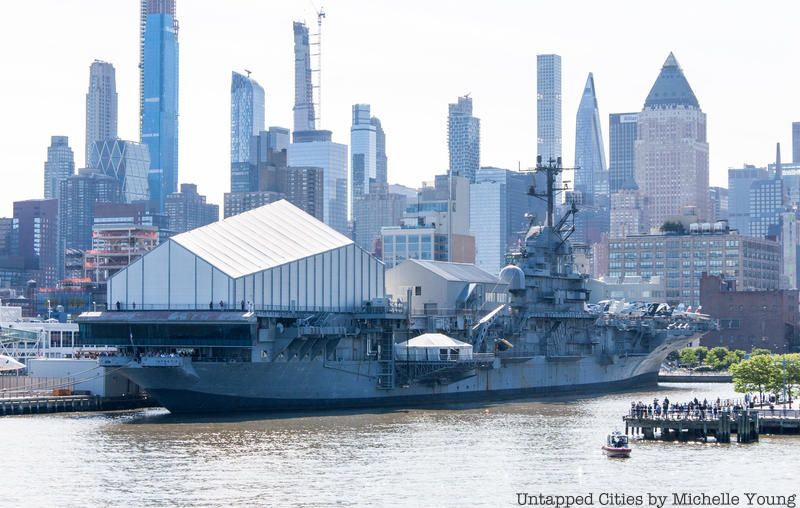
A total of 270 men made the ultimate sacrifice on the USS Intrepid: a full list of the names can be found on the museum’s website. The majority of kills took place during World War II, with several perishing in kamikaze attacks on the ship. The carrier’s “Darkest Day” happened on November 25, 1944, when two kamikaze attacks resulted in the death of 69 men, which is by far the most casualties suffered in one day on the ship, according to the museum.
8. The USS Intrepid was a Recovery Vessel for Mercury-Atlas 7 and Gemini 3
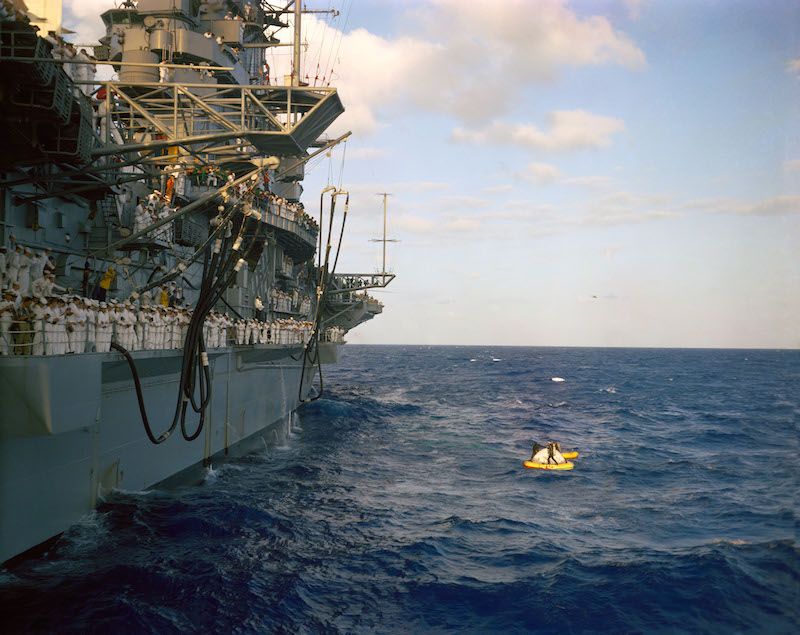
Recovery of Gemini 3 Crew. Photo by NASA via Wikimedia Commons.
In May 1962, the Intrepid was the “primary recovery vessel for the Mercury-Atlas 7 space mission,” according to the museum. This mission was particularly special because it was only the “second orbital flight of an American rocket with a human on board,” according to NASA. The Intrepid recovered astronaut Scott Carpenter nearly three hours after he landed.
As for Gemini 3, this was the first mission of the Gemini series that had a crew orbiting earth. The carrier would later recover astronauts John Young and Virgil Grissom in March 1965 via helicopter.
Get tickets to check out the Intrepid here.
7. The Submarine Growler, A Missile Sub, Is Displayed Next to the USS Intrepid
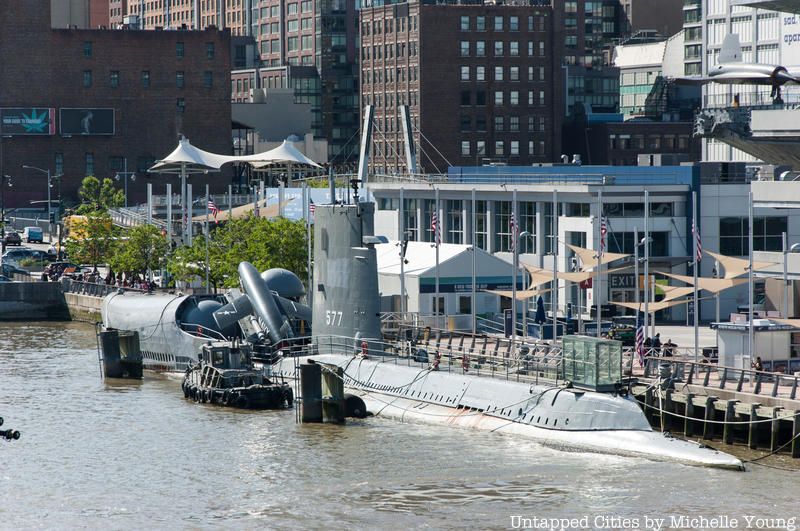
The USS Growler (SSG-577), located next to the Intrepid, is the only American diesel-powered strategic missile submarine open to the public, according to the museum. People can go down and see the crew’s mess, control room, attack center and torpedo room. But what people probably do not know is how important the Growler was to the United States’ nuclear defense plan in the 1960s. The Growler became a part of the Regulus Program, which had diesel boats with nuclear weapons going on deterrent patrols near Soviet waters.
6. The Space Shuttle Enterprise is Displayed on the USS Intrepid
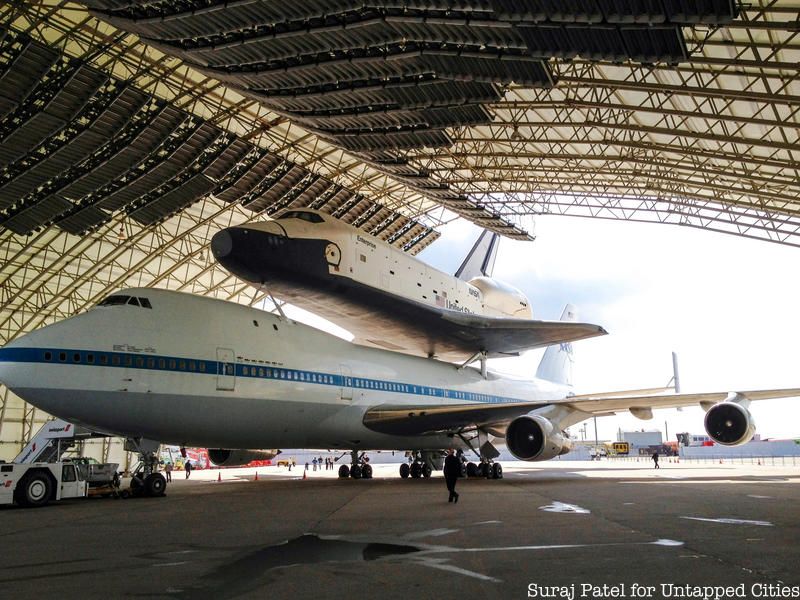
The Space Shuttle Enterprise at JFK Airport before it moved to the Intrepid
The Space Shuttle Enterprise, which we previously photographed at JFK Airport en route to the Intrepid, is currently on display atop the aircraft carrier. It was the first space shuttle orbiter, but it never actually made it into space. It was mainly used for landing tests, to see how flights would return to Earth. However, when time came to make it a real shuttle, it was overlooked due to budgetary reasons, according to ARS Technica.
When originally brought over to the Intrepid in 2012, it was given an inflatable canopy cover. This canopy would eventually be damaged in Hurricane Sandy and had to be redone: this time they added a metal skeleton to hopefully prevent any collapses in the future. With this addition, the Space Shuttle Enterprise was reopened in July 2013.
5. Star Trek’s Connection to Space Shuttle Enterprise
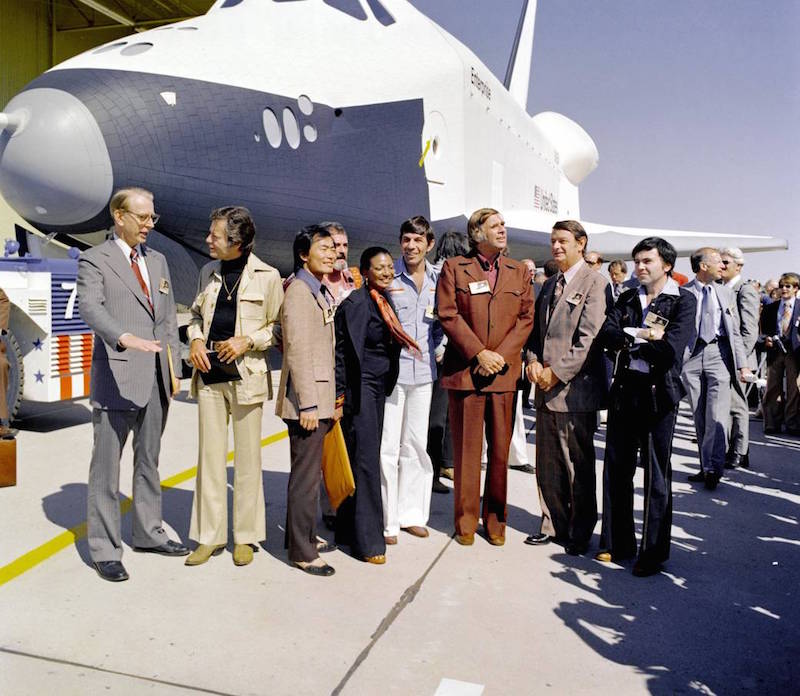
Photo by NASA via Wikimedia Commons.
Right now, anyone can check out the exhibit Star Trek: The Starfleet Academy Experience, which is located on the Intrepid. But Star Trek also shares a special connection to Space Shuttle Enterprise: the space shuttle orbiter was originally supposed to be called the Constitution. But after fans of the show did a “write-in campaign” to the White House, the name was changed to the Enterprise. The cast was even present when Space Shuttle Enterprise was revealed to the public.
4. The USS Intrepid Was Nicknamed ‘The Fighting I’
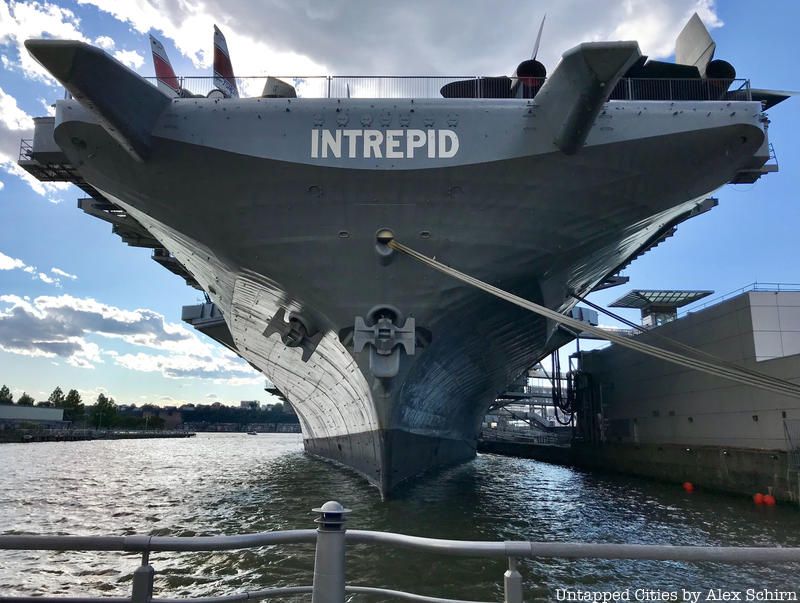
For its frontline effort during World War II, the Intrepid was nicknamed ‘The Fighting I.’ Not only was the carrier hit with a torpedo and several kamikaze strikes, it took place in the battle of Leyte Gulf and Okinawa, according to the Intrepid Museum.
3. The USS Intrepid was Decommissioned Three Times

The USS Intrepid was decommissioned three separate times. In 1947, the Navy did not need massive carriers, so they put the carrier in the reserve fleet. It was modernized in 1952 and used in the Cold War in 1954. Finally, in 1974, the carrier was decommissioned for the final time. It was not opened as a New York exhibit until August 1982.
2. The Time The USS Intrepid Was Unable to Be Moved
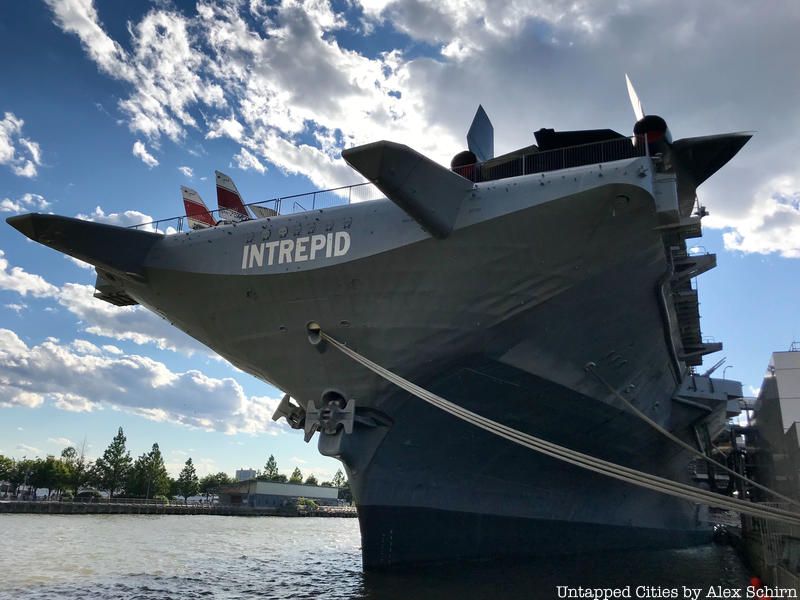
During renovations to the USS Intrepid in 2006, it was discovered that the ship was immovable. After 24 years in this location, mud and silt had accumulated under the carrier. The first attempt to pull the ship from port resulted in a $3 million project to remove the obstruction. While initial efforts of the second tug almost failed, they were able to get the Intrepid out of the New York harbor, according to The New York Times. The Intrepid was renovated at the dry docks at Brooklyn Navy Yard.
Here is a time lapse of the Intrepid going into the dry dock:
1. The USS Intrepid Was Involved in a Simulated Soviet Attack
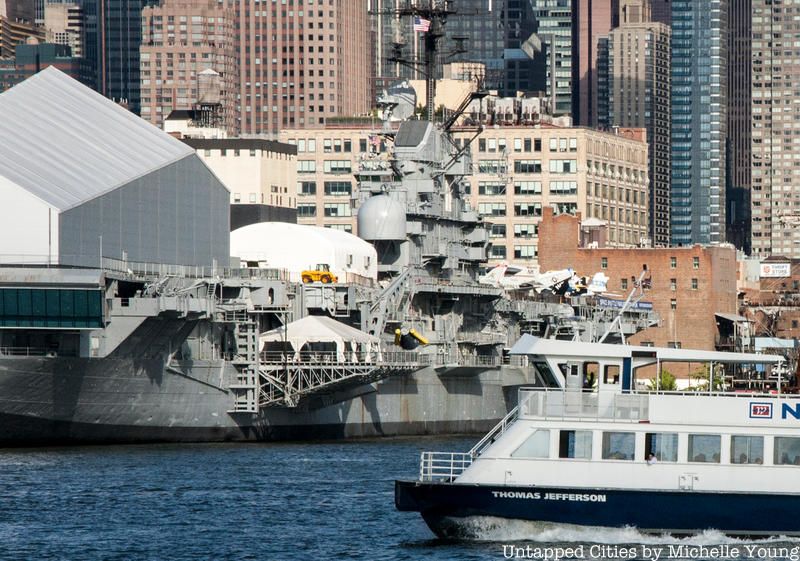
Exercise Strike Back was a ten-day naval procedure by the North Atlantic Treaty Organization (NATO) in 1957. During the Cold War, this simulated a Soviet attack. The exercise used warships, aircraft and personnel from the United States, British, Canadian, French, Netherlands and Norwegian Navy, according to the The New York Times. Most importantly, one of the ships featured during the exercise was Intrepid, which is discussed in Time Magazine’s coverage of the event.
Get tickets to the Intrepid here. Next, discover 10 abandoned and retired boats in NYC. Check out the new exhibit at the Intrepid, “Star Trek: The Starfleet Academy Experience” and see more about The Growler Submarine at the Intrepid Museum.

